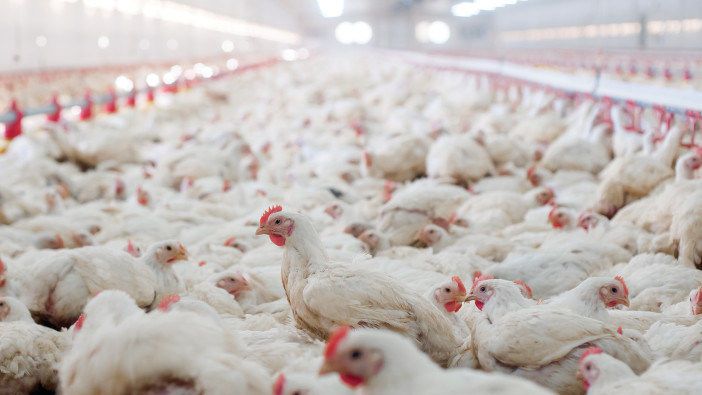Dr Sean Wisdom, St David’s Poultry Team’s regional lead vet for the East of England began his career in South Africa, where regular high temperatures can pose a significant risk to bird health, welfare and productivity.
Although temperatures have been somewhat variable so far in 2024, producers should remain vigilant and have plans in place should high temperatures occur – something that is key to minimising the impact of heat stress.
As Dr Wisdom explains: “As well as the health and welfare implications, without a robust heat stress plan in place, producers risk substantial financial loss. As well as the risk of mortality, heat stress can result in a reduction of feed intake which means there can be long-term consequences, such as lower weight gain or a deterioration in eggshell quality.”
Depending on the age of a bird, a normal body temperature is between 39.5 and 41 degrees. As weather temperatures rise, so can the body temperature of the bird. As it does and in its most severe manifestation, heat stress can lead to cell damage and systemic inflammation, that could lead to shock and death.
Spotting heat stress
Birds will try and cool down as their body temperature rises by changing their behaviour. This can include resting more, moving away from other birds and holding their wings away from their bodies. Feed intake may fall and water consumption increases. Physical signs include a noticeably darker skin, as blood is diverted from the internal organs to the skin.
If these attempts at cooling aren’t successful, birds will begin to pant, to promote evaporative cooling.
The importance of humidity
As well as the air temperature, humidity plays an important role in a birds’ likelihood to be affected by heat stress. Dr Wisdom explains: “As an island, the UK tends to experience higher humidity levels. This is important as the temperature experienced by the birds is a combination of air temperature, the relative humidity and wind speed/chill factor and therefore it is important to use the heat index calculator. For example, an air temperature of 34 degrees and 40 per cent humidity gives a heat index temperature of 35 degrees. Change that to 65 per cent humidity and the heat index temperature is 44.”
Planning ahead
“The importance of planning ahead cannot be underestimated,” explains Dr Wisdom. “Not only when higher temperatures are imminent but also during those times of the year when it is cooler. For example, planning to lessen stock density, checking fan capacity, ensuring the sheds are well insulated and painting roofs white will help – all things that can be done ahead of summer.
“When higher temperatures are forecast it’s important to have a day-by-day plan in place. Ahead of the higher temperatures, this should include drying the sheds by removing wet bedding and fixing any leaky drinkers to minimise humidity, getting the shed temperature as low as possible and stocking up on supplements such as electrolytes, that will help keep the birds hydrated and recover afterwards.”
As temperatures rise, the focus needs to be on keeping the shed as cool as possible and encouraging the birds to drink. Flushing the water lines often will get rid of any warm water and lowering the drinkers and increasing the pressure slightly make it easier for the birds to drink.
When it comes to supplementing with electrolytes, Dr Wisdom advises that these should only be given when all other management options have been exhausted. If given too early, the birds will overdrink leading to wet bedding and increased humidity that will exacerbate the problem.
Looking out for secondary symptoms
Birds will be tired after panting and therefore it is important to encourage them to eat and drink. Dr Wisdom concludes: “I’d always recommend being mindful of secondary symptoms that typically occur three or four days after heat stress. This is when birds are prone to digestive problems, however this can be prevented by introducing essential oils, one or two days after temperatures fall.”


